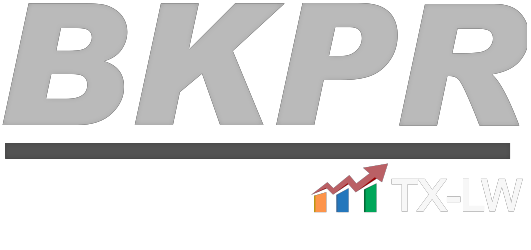A business has the ability to record transactions on a cash or accrual method of accounting. This is one of the first accounting decisions a business has to make. It is also one that a business has to evaluate on an ongoing basis. The benefit of using one method may no longer apply given changes in the business or our laws. The differences can have a significant impact on the business and how it is operated.
The Cash Method of Accounting
The cash method of accounting just refers to the process of recording transactions when the funds are exchanged.
At its simplest form, with the cash method of accounting, if every transaction is handled by cash, the transactions are recorded when the cash changes hands. Business owners understand cash method of accounting, as they look to their checking account to determine the amount of income and expense. This is a default method for those who do not have separate books and records.
The cash method of accounting is the default method used by most small businesses. It is intuitive. But it can also be misleading. A business that operates on the cash method of accounting may have accounts receivable (amounts owed to the business for services or goods sold), accounts payable (amounts owed by the business for services or goods purchased), or inventory that has been purchased but not yet been sold. These amounts are not factored into the books–or financial statements–if the books are kept on a cash method of accounting. Given this discrepancy, business owners may not be able to rely on their financial statements to make business decisions.
The Accrual Method of Accounting
This brings us to the accrual method of accounting. The accrual method of accounting does not record transactions when the funds are exchanged. Transactions are recorded at the time the revenue or expense are earned or incurred, regardless of when money changes hands.
The accrual method is often less intuitive for business owners. It requires transactions to be recorded even though the transactions may not be complete–at least–not complete in the business owners view.
But the accrual method will often result in more accurate books and financial statements. This is particularly true when there are accounts receivable, accounts payable, or inventory.
Accounting for Income Taxes
Income taxes are generally reported on the same cash or accrual methods. Income taxes are one of the largest expenses for most businesses. As such, we have to consider the impact of the accounting method on income taxes too.
As with books and financial statements, the cash method of accounting can result in distortions from one tax year to another. For example, this can happen when there is an expense that is deducted in the year the expense is incurred, but the revenue associated with the expense is not realized until a later year.
Inventory is a good example. A cash basis taxpayer with inventory will take a deduction for materials and supplies to purchase the inventory, but will only recognize the income from the sale of the inventory when the inventory is sold to customers. This mismatch can result in a large tax loss in the first year, and then a large income in the later year.
The tax code also includes several provisions that allow certain taxpayers to avoid recognizing revenue until later years. This can be a significant advantage as it allows the business to push its tax liability back to future years, which lets the business use the funds that would have been used to pay taxes for other purposes. Some business owners view this timing issue as a short term loan from the Federal government.
The accrual method of accounting may be preferable as it helps avoid distortions, but there are times when the distortions can be beneficial for the business.
The accrual method can be more difficult for business owners to maintain. It requires more effort to keep up the books on an accrual method. Most businesses use the cash method of accounting for this reason.
Prior to the Tax Cuts and Jobs Act (“TCJA”) of 2017, businesses with over $10 million in revenues or businesses with inventory generally had to use the accrual method of accounting for income taxes. The TCJA increased the limit to $25 million, which means that most small and medium sized businesses can now use the cash method of accounting. This is consistent with the 100% bonus depreciation that was allowed by the TJCA.
By moving more taxpayers to a cash method, business owners can expect swings in the amount of income taxes they pay from one year to the next.
Get Help With Your Business
We help businesses across the country with taxes and payroll services, but we focus on providing bookkeeping in Houston, Texas. Call us today to see how we can help, (832) 915-1040.



